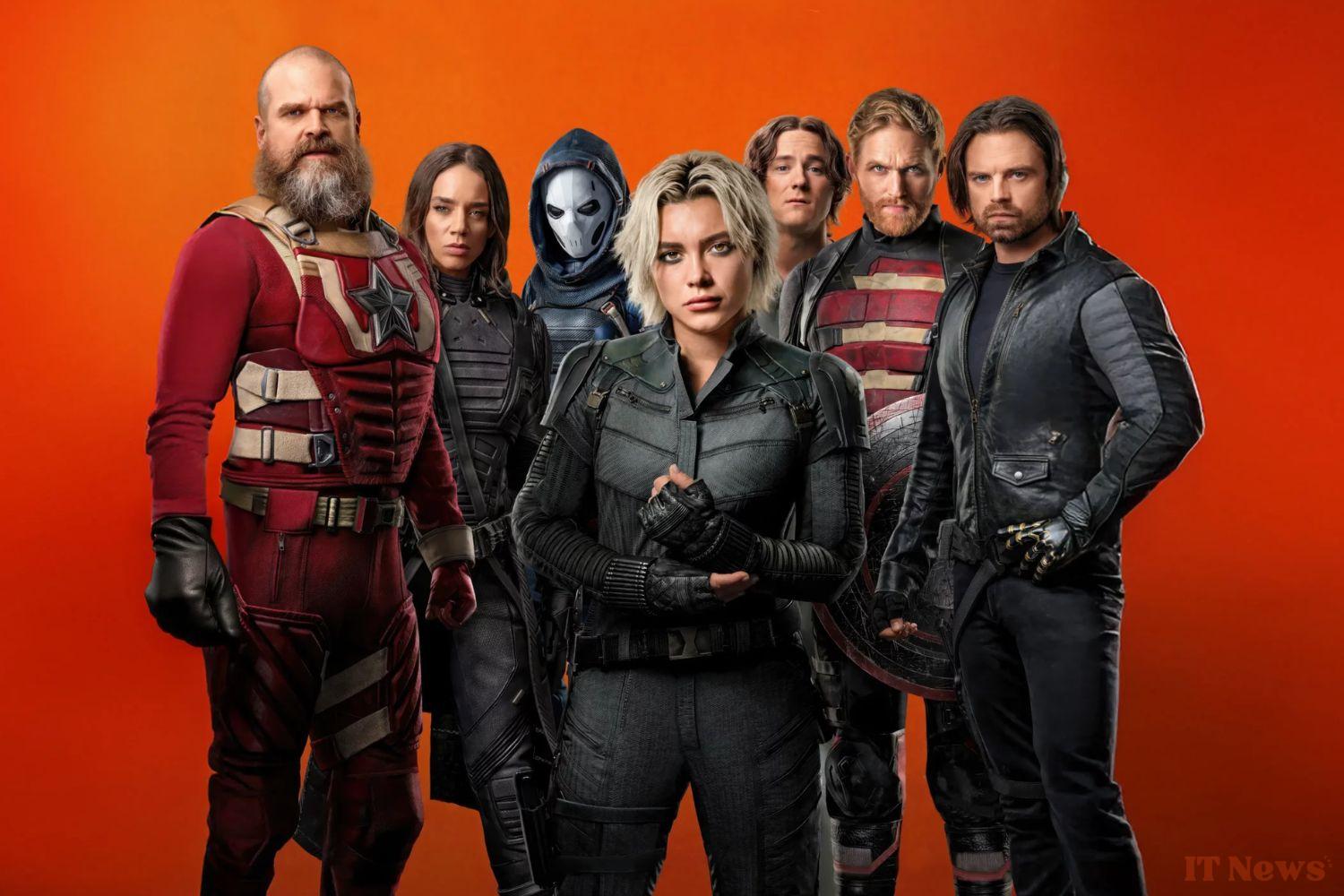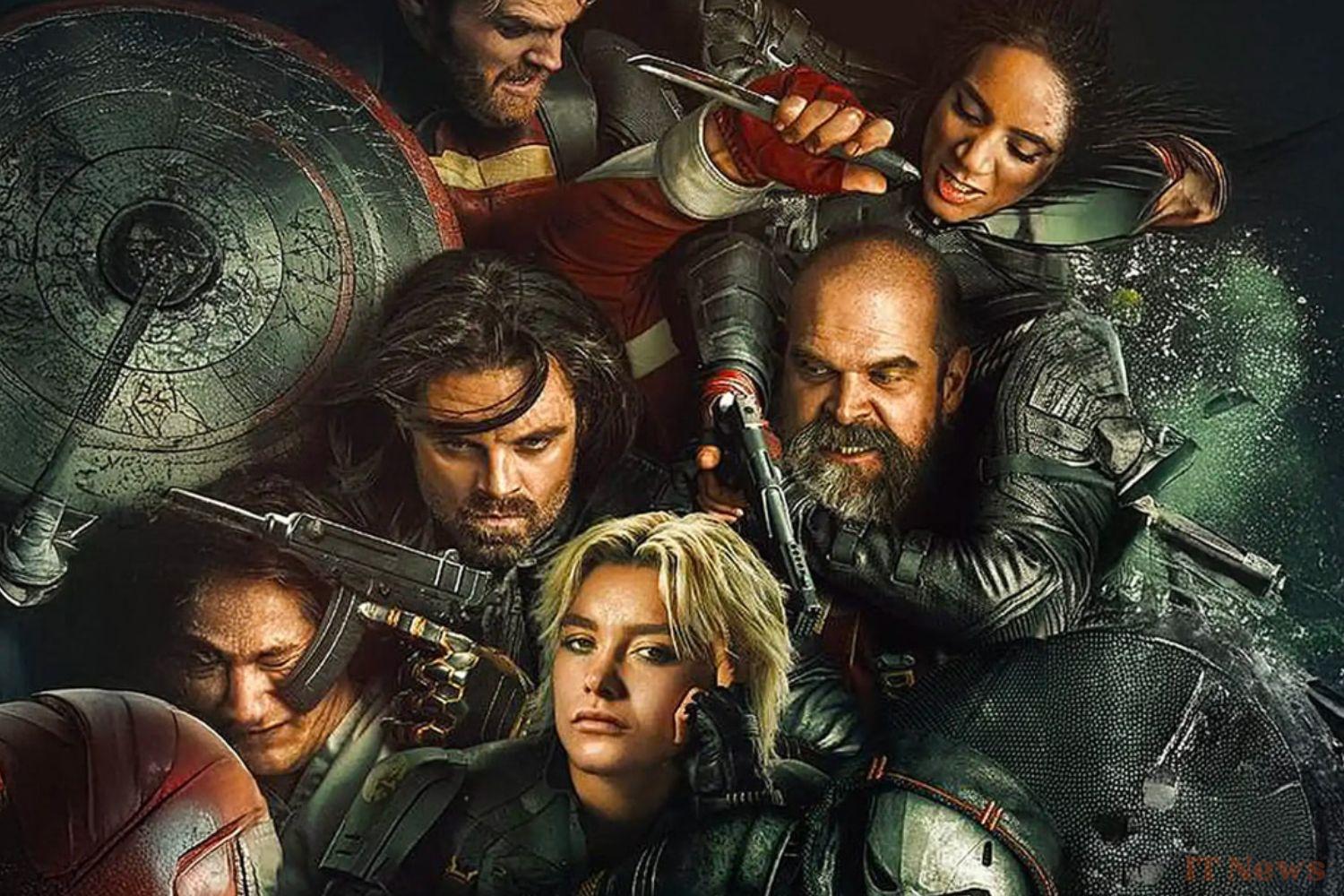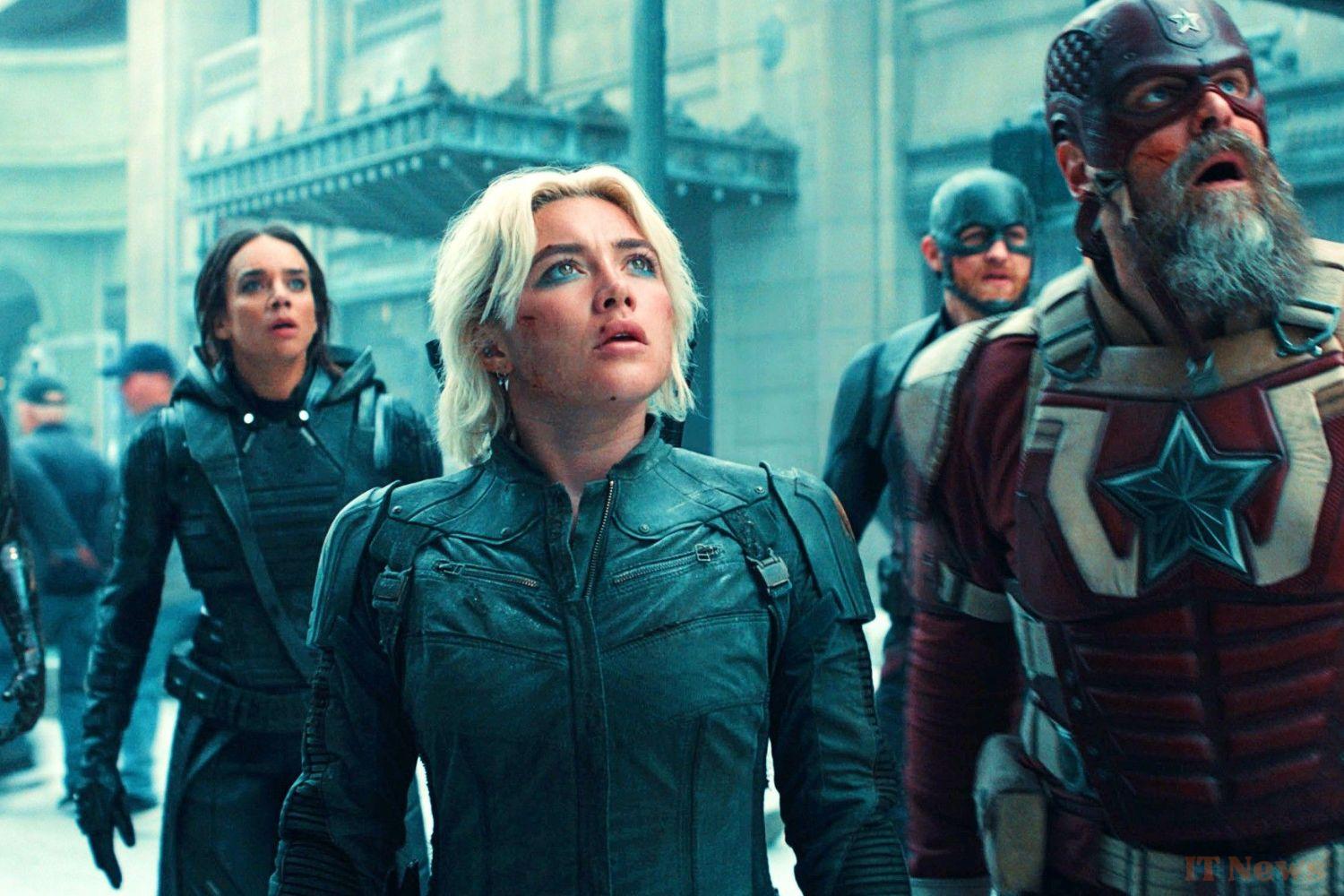It's not the most anticipated, and yet, Thunderbolts* can boast of making its mark within the very long list of MCU films. Far from being just a marketing pitch for Marvel to flatter itself—we've seen the baby and we can confirm it—it's true that Jake Schreier's feature film (the Hard-Bending series) addresses much more human and darker subjects than one might have assumed.
Tradition dictates that the hero must overcome his doubts and flaws to save the world. The famous "with great power comes great responsibility." Even when you don't have superpowers like Sam Wilson in Captain America 4. Except that Thunderbolts* features a team of characters who are not known for their heroism, quite the opposite in fact. A great opportunity to tackle these doubts and flaws head-on, and more broadly, mental health.
Overcoming loneliness
“The film opens with a leap into the void that could suggest that Yelena commits suicide, and I find it very powerful to start that way,” comments Florence Pugh, who plays the assassin Widow. “We know she doesn’t do it because we know her skills, but it’s not a pretty image; she doesn’t jump, she falls. It’s an act that we directly associate with a negative feeling..”
For the actress, the heart of the project is there, lost protagonists who no longer have anything to hold onto. This is perhaps the most significant difference with a Marvel production based on the reunion of losers: Guardians of the Galaxy. In the film, they are looking for a family, but are never truly alone at first (Peter belongs to the Ravagers, for example). Here, the "heroes" have no goal, no future, due to their choices, and no one to connect with. The first theme of the film is loneliness. "Yelena has no reason to be there in the opening sequence, she is lost and looking to put herself in danger," assumes Florence Pugh. This feeling of not finding one's place is shared by the entire team and their actors. "Red Guardian is obsessed with reviving his glory," confirms David Harbour. For Hannah John-Kamen, Ghost has built her "Fort Knox" where she doesn't let anyone get close, and the importance of her evolution will be to make her understand that she doesn't have to go through this alone and that she also deserves to be loved. Wyatt Russell (John Walker) believes that the point to overcome is to admit our flaws, because many of these anti-heroes - and the people who surround us every day in life - have built themselves up with the idea of never showing an ounce of vulnerability, they have hidden from each other and from themselves.
Fighting depression
Ideas at the forefront of the script of Thunderbolts* which prioritizes its characters over the overabundance of action, with, as the real enemy, the depression that results from their isolation and their mistakes. Lewis Pullman (Bob) discussed a lot how to approach the subject without falling into a commercial message, it was necessary "that it contains as much truth as our own experience." "The real goal of the film is to get rid of that strange, trembling feeling you get when you dare to talk about it."
The casting highlights the emotional side of the feature film and that the whole point is to "show the reality of trauma" so that it provokes discussions at the end of the screening. Although the treatment of depression on screen does not reach the levels of Hardcore - we are still with Marvel -, it must be recognized that it is a real breath of fresh air to see a big production talk about it so openly, so head-on. "I was grateful that we had a script that really represented what someone might feel," admits Florence Pugh, especially since her comrade Lewis Pullman did not hide having suffered from it at one time. "We were allowed to show that we can all make mistakes, I think that's a very impressive thing to see in a Marvel movie that will be seen by a lot of people, a message that we all need to convey."
Thunderbolts* seeks to send a message to those who would only be reduced to their mistakes and, by wanting to bury them so deeply, would only isolate themselves, where someone else could help them see themselves differently. A preventative speech around mental health, depression, loneliness, and the need to open up to those around us to be able to get through it. Everything is not perfect, but a Marvel that tells something, and something real, human and essential, these are all good reasons to give Thunderbolts* a chance.






0 Comments